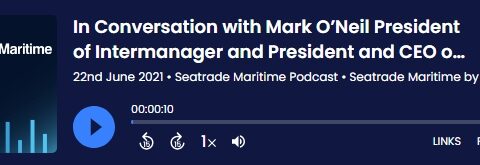Clipper Group partner Per Gullestrup says the nationality of seafarers taken hostage in piracy attacks has had a marked impact on the international response to the crisis.
Some 94% of crew members taken hostage so far by Somali pirates have come from developing countries, he adds. “I can guarantee that if it had been the other way around and it had been 94% from OECD countries, I wouldn’t be standing here today,” said Gullestrup.
The Copenhagen-based Clipper executive used a Capital Link corporate social responsibility (CSR) forum in London to again urge shipowners to share their experience of hostage-taking by pirates and “raise awareness of the untold suffering that has been imposed on our colleagues at sea”.
It would increase the chance of getting politicians involved,although he is pessimistic of change until piracy becomes a vote-winner.
According to Gullestrup, all 13 crew members on Clipper’s 7,300-dwt general cargoship CEC Future (built 1994), the victim of a 71-day hijacking and hostage taking in the Gulf of Aden between November 2008 and January 2009, returned to sea initially with Clipper.
Some 11 are still sailing with the company and have since passed through the Gulf of Aden.
No crew members had ever asked to be signed off prior to a transit “and we hope and believe it is because the crew know that we are doing everything in our power to ensure their safety to this day”.
Security measures taken by Clipper include the use of Russian marines.
The company, unlike many other owners, had been prepared to discuss its experience with the CEC Future and, says Gullestrup, became the only owner to have a pirate prosecuted after the event.
Jama Idle Ibrahim was sentenced to 25 years in the US after, notes Gullestrup, Clipper worked closely with the authorities including the FBI.
He is calling on more of the 200 owners of ships so far hijacked to do the same. That would highlight to pirates the risk they are taking when attacking a ship.
“Four to five years into this we conclude that the international community is [still] treating the symptoms of piracy and not getting to the root cause,” said Gullestrup.
Peter Swift, chairman of the Maritime Piracy Humanitarian Response Programme, also regretted the fact that owners generally were not sharing their exper-iences of piracy in the way Clipper had.
Giles Noakes, Bimco’s chief maritime-security officer, says that with freight rates collapsing, large numbers of owners and operators are questioning the sense in sailing out of the Strait of Hormuz with 40% of American oil “because they aren’t actually protecting us”.

